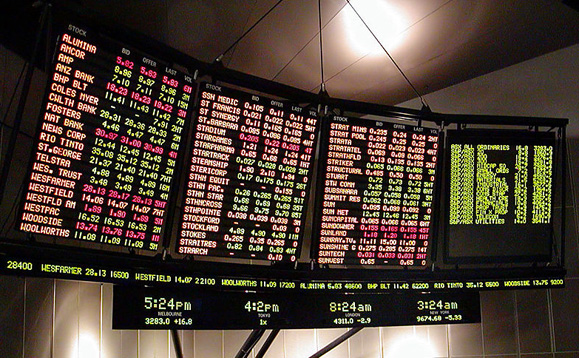(THIS ARTICLE IS MACHINE TRANSLATED by Google from Norwegian)
The global world economy still seems to be in free fall. At least if the authorities do not intervene with their increasingly frequent rescue packages to save the stumps from housing bubbles and turbo capitalism.
On Tuesday, the Organization for Economic Cooperation and Development announced that the OECD is heading into a protracted recession, economic decline. Eight million more will be thrown into unemployment next year.
The OECD expects the financial crisis to push the world's industrialized countries, which make up 60 percent of the world economy, into the worst recession of over 25 years.
- 21 of the 30 OECD members will undergo a recession that has not been seen since the early 80s, said chief economist Klaus Schmidt-Hebbel when he presented the report in Paris on Tuesday.
The oil country Norway is not one of the worst affected. To that end, the polluting oil industry is doing well. So far. The number of unemployed is likely to increase to 42 millions overall in the 30 countries within 2010. The OECD emphasizes that forecasts are based on the worst financial crisis. If more unexpected turns follow, the forecasts will have to be further adjusted. And that is the absolute danger of having to happen.
At such a time, after years and years of growth in the world economy, it is natural that other thoughts than the desire for more goods and gold also come to light. This must be noted that it is not desirable that increased unemployment or poverty is desirable. But at the same time, as Steinar Lem in the Future has pointed out in our hands, now we have the opportunity to think through the values our society is based on.
"We live by an absurd idea that everyone in the world should have more, that even rich people are dependent on growth. We dance faster and faster around an ever-growing golden calf, but this can not continue…, »said Lem last month. Instead, he wants lower consumption, and calls for sustainable development – ideas that have gained new strength over large parts of the world in recent weeks, and hopefully also at the climate summit in Poznan, Poland next week.
"We have to get some shock to open our eyes… The rich world is deeply benefiting from a financial crisis because consumption is declining," said Lem.
Last week, Dag Hareide, principal at Nansen School, followed up. He pointed out that what we have seen most so far is a settlement of turbo capitalism and unethical investments. One still lacks the basic settlement of, or discussion of, capitalism itself or the emerging economy. Or put it another way: We still take for granted that the term wealth means financial wealth, not spiritual or intellectual wealth.
For many years, in Norway, most of them have been measured by how many kroner the inhabitants of different countries have had on average. Perhaps, after all, this may come out of this economic crisis, namely, the emergence of the long-standing intellectual crisis where money has become the yardstick of all goods. Maybe then we can also show increased understanding and respect for those who do not have as many flat screens or financial benefits as ourselves, but who nevertheless show the same joy of life, if not more.
After all, these are values. But not necessarily the values we have taken for granted in recent years.


